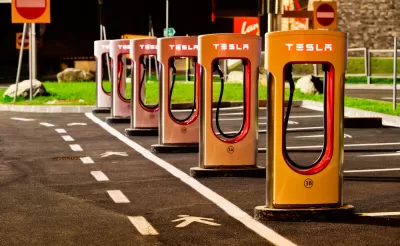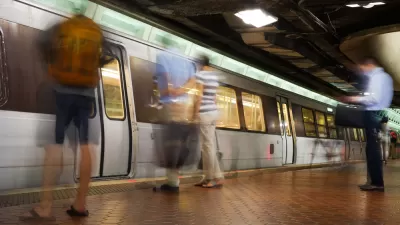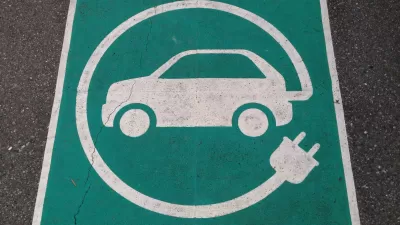A new report shows that long-term federal investments in electric vehicles could promote significant growth in the sector as the nation moves toward reducing GHG emissions.

In a report from the Rhodium Group authored by John Larsen, Ben King, Hannah Kolus, and Emily Wimberger, the authors "assess the energy system and emissions impacts of potential new, long-term federal investments in on-road decarbonization and how investments might interact with potential new vehicle regulations." According to their research, "federal investment in the form of long-term extensions of current tax credits coupled with a build-out of charging infrastructure can catapult electric vehicles (EVs) from 2% of all light-duty vehicle (LDV) sales in 2020 to as high as 52% of all LDV sales in 2031."
With the transportation sector as the leading source of greenhouse gas emissions(representing 31% of the U.S. net total), its decarbonization is a crucial step toward reducing overall GHGs and fighting climate change. "Any action to decarbonize transportation through electrification will require ambitious and sustained effort to accelerate deployment of electric vehicles as quickly as possible." Yet "[u]nlike the electric power sector where a hard pivot from fossil energy to clean energy is entirely doable, it will take decades to replace all of the conventional gasoline and diesel vehicles on the road today with electric models." To get conventional fossil fuel vehicles off American roads, "every vehicle sale matters in the race to electrify and decarbonize transportation." According to the authors, robust investment in U.S. manufacturing and clean transportation at the federal level could "get the nation a few miles further down the long road of decarbonization."
FULL STORY: Pathways to Build Back Better: Investing in Transportation Decarbonization

Planetizen Federal Action Tracker
A weekly monitor of how Trump’s orders and actions are impacting planners and planning in America.

Congressman Proposes Bill to Rename DC Metro “Trump Train”
The Make Autorail Great Again Act would withhold federal funding to the system until the Washington Metropolitan Area Transit Authority (WMATA), rebrands as the Washington Metropolitan Authority for Greater Access (WMAGA).

The Simple Legislative Tool Transforming Vacant Downtowns
In California, Michigan and Georgia, an easy win is bringing dollars — and delight — back to city centers.

The States Losing Rural Delivery Rooms at an Alarming Pace
In some states, as few as 9% of rural hospitals still deliver babies. As a result, rising pre-term births, no adequate pre-term care and "harrowing" close calls are a growing reality.

The Small South Asian Republic Going all in on EVs
Thanks to one simple policy change less than five years ago, 65% of new cars in this Himalayan country are now electric.

DC Backpedals on Bike Lane Protection, Swaps Barriers for Paint
Citing aesthetic concerns, the city is removing the concrete barriers and flexposts that once separated Arizona Avenue cyclists from motor vehicles.
Urban Design for Planners 1: Software Tools
This six-course series explores essential urban design concepts using open source software and equips planners with the tools they need to participate fully in the urban design process.
Planning for Universal Design
Learn the tools for implementing Universal Design in planning regulations.
Smith Gee Studio
City of Charlotte
City of Camden Redevelopment Agency
City of Astoria
Transportation Research & Education Center (TREC) at Portland State University
US High Speed Rail Association
City of Camden Redevelopment Agency
Municipality of Princeton (NJ)





























